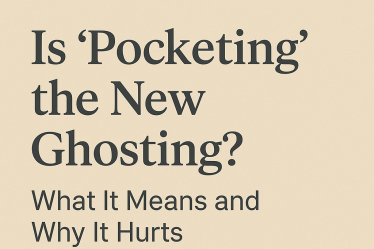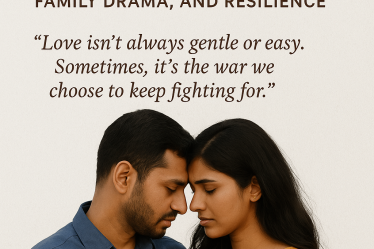
In a committed relationship, love can feel all-consuming. You want to be close, connected, and in sync. But staying close shouldn’t mean losing yourself.
When “we” overshadows “me,” resentment, confusion, and emotional exhaustion can quietly creep in. Protecting your identity while loving someone deeply is key to building a balanced and lasting relationship.
Here’s how to maintain your sense of self without sacrificing intimacy.
Why Protecting Your Identity Matters
Your personal identity—your values, passions, personality, and purpose—isn’t just important to you. It’s also a big part of what made your partner fall for you.
When we start changing too much to fit the relationship, we risk:
- Losing confidence in our own decisions
- Becoming overly dependent on our partner for happiness
- Feeling resentful, confused, or stuck
Research shows that autonomy fuels emotional health and makes relationships stronger. When both partners stay true to themselves, trust and respect thrive.
Signs You’re Losing Yourself in the Relationship
Not sure if you’ve started fading into the background? Watch for these signs:
- You constantly say yes, even when it hurts
- Your hobbies or goals have taken a backseat
- You feel anxious when not with your partner
- You rely on your partner to define your worth
Use this as a checkpoint—not to shame yourself, but to realign with your needs.
Set Boundaries That Support Love and Self-Respect
Boundaries aren’t about walls. They’re guidelines that show where you end and someone else begins.
Healthy boundaries can look like:
- Scheduling regular solo time
- Being honest about emotional triggers
- Saying “no” without guilt
- Asking for space when needed
When you respect your own boundaries, others learn to do the same. That’s not selfish—it’s essential.
Keep Growing as an Individual
It’s easy to fall into routines. But personal growth keeps your energy, confidence, and creativity alive.
Ways to stay connected to yourself:
- Reignite an old passion—music, writing, hiking
- Set personal goals outside the relationship
- Plan occasional solo outings or trips
- Journal your thoughts to track your growth
When you grow, your relationship benefits too. You’re not just happier—you’re more present and fulfilled.
Communicate with Love and Honesty
A strong love bond is built on honest, loving communication—not silent sacrifices.
Try:
- Using “I” statements: “I need more time for myself lately.”
- Having regular check-ins about how you both feel
- Creating space for emotional honesty without judgment
You don’t need to be perfect. You just need to be real.
When to Seek Help
If you’re struggling to find yourself again, or if your partner resists your growth, it may be time to seek professional help.
Therapists can help:
- Rebuild your confidence and boundaries
- Guide honest conversations between you and your partner
- Offer tools to reconnect with your values and self-worth
There’s strength in asking for support. It shows commitment—to both yourself and your relationship.
Final Thoughts
You don’t need to choose between love and identity. The strongest relationships are built on mutual respect for each other’s individuality.
Protecting your identity isn’t pulling away—it’s showing up fully. For yourself. For your partner. And for the love you’re building together.



